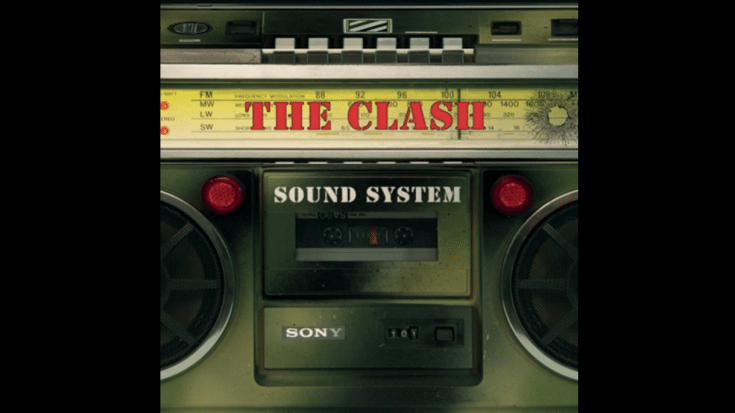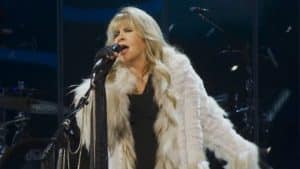7 Protest Songs From The ’70s

via The Clash/YouTube
Powerful and Effective
The ’60s and ’70s have some of the greatest and most powerful protest songs of all time. Vietnam War, civil rights movement, women empowerment, Black Power – musicians found a way to use their voice and music to take a stand. The messages are loud and clear, and they resonated with the listeners. Decades later, however, these songs remain relevant.
Let’s check them out.
7. Gil Scott-Heron – “The Revolution Will Not Be Televised” (1971)
The title came from a popular slogan in the ’60s for the Black Power movements in the US. It’s a response to The Last Poets’ spoken-word piece “When the Revolution Comes”. From his lyrical delivery to the funky groove, it became integral in the development of hip-hop. Gil Scott-Heron was only 21 years old when he wrote this. He explained, “The revolution takes place in your mind. Once you change your mind and decide that there’s something wrong that you want to effect that’s when the revolution takes place. But first you have to look at things and decide what you can do. ‘Something’s wrong and I have to do something about it. I can effect this change.’ Then you become a revolutionary person. It’s not all about fighting. It’s not all about going to war. It’s about going to war with the problem and deciding you can effect that problem. When you want to make things better you’re a revolutionary.”
6. The Isley Brothers – “Fight the Power” (1975)
It’s catchy and infectious but its message cannot be ignored. Because they used the word “bullshit” in the song, it was censored by radio stations. With their powerful vocal performances, it wasn’t long before this became an anthem. Bassist Marvin Isley told Blues & Soul in 1976, “We don’t close ourselves away like some entertainers do – we listen to the radio, read the newspapers and generally get into what’s happening out there in an attempt to reflect the world as it is. With The Heat Is On, we wanted to be as funky as possible musically, and yet for the lyrics to say something unusual. ‘Fight The Power’? Well, we decided not to be passive, to take a stand. And we met hardly any resistance because that power could be anything – we all have our different conceptions of what it is to each of us. And just letting it out – about the bulls–t that does go down – is something that everyone wants to do.”
5. The Wailers – “Get Up, Stand Up” (1973)
Bob Marley was inspired to write the song while he was on tour in Haiti especially as he witnessed the poverty and the lives they led. Written with Peter Tosh, it was also influenced by growing up in Jamaica and how they had to fight not only for respect but also for acceptance. It became a staple in Marley’s live repertoire as a last song. It was also the final track he ever performed on September 23, 1980 as he died a few months later. Bruce Springsteen, Sting, Peter Gabriel, Tracy Chapman and Youssou N’Dour covered the song in 1988 for the Amnesty International Concert for Human Rights.
4. The Clash – “(White Man) In Hammersmith Palais” (1978)
One of the band’s greatest songs, Joe Strummer wrote it after attending an all-night reggae “showcase” night and feeling disappointed afterwards. The later verses then touched on various issues in the United Kingdom at the time. They addressed wealth distribution, Britain’s social decline, and also promoted unity between black and white youths. And they added a dig at new punk rock groups whom they accused of selling out and only focused on money and fame.
3. Bob Dylan – “Hurricane” (1976)
Bob Dylan has written and recorded some of the most powerful and effective protest songs of all time. The song is about professional boxer Rubin “Hurricane” Carter who was imprisoned for a triple murder charge that he claimed he didn’t commit. He and a man named John Artis were found guilty but it was widely reported that the verdict was racially motivated. It was controversial because of alleged faulty evidence and overall, unfair trial. Dylan even visited Carter in Rahway State Prison in Woodbridge Township, New Jersey – he penned the track after meeting Carter. The folk rock icon also raised money for Carter’s defense. Eyewitness Patty Valentine sued Dylan for defamation after finding her name in the song.
2. Marvin Gaye – “What’s Going On?” (1971)
Written by Renaldo “Obie” Benson, Al Cleveland, and Marvin Gaye, it was inspired by something Benson personally witnessed – police brutality and violence during an anti-war protest at Berkeley’s People’s Park. Benson later commented, “My partners told me it was a protest song. I said ‘no man, it’s a love song, about love and understanding. I’m not protesting, I want to know what’s going on.'”
1. Crosby, Stills, Nash and Young – “Ohio”
One of the most popular protest songs of all time, Neil Young wrote this in response to the Kent State shootings of May 4, 1970 where members of the National Guard open fired at students who were staging a peaceful protest – four were killed while nine others were injured. Young considers this as the best song he wrote for the group.

























